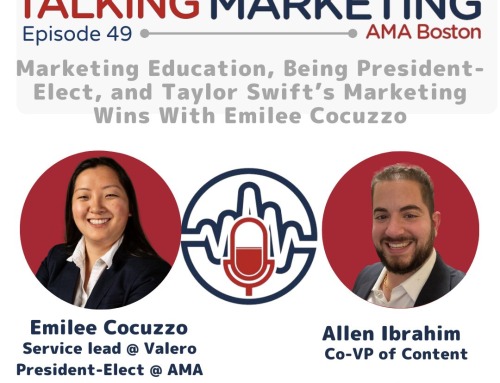Technology is moving so quickly in so many directions. Its advancement continues to drive economic growth and, in some cases, unleash disruptive change. Disruptive technologies transform the way we live and work, enable new business models, and provide opportunities for small players to disrupt the status quo. It is crucial for marketers to recognize potentially disruptive technologies and analyze their potential before these technologies begin to shape economies and societies.
Some of the technologies that started to have disruptive impact on multiple industries (e.g., education, healthcare, finance, manufacturing, and retailing), consumer lives, and society at large are mobile internet, IoT (internet of things), artificial intelligence based automation of knowledge work, advanced robotics, 3D printing, quantum computing, renewable energy, energy storage, advanced materials and nanotechnology and so on. According to Gartner’s recent report, it is estimated that potential economic impact that will come from these technologies is between $14 trillion and $33 trillion a year in 2025.
As with their unique role, marketers have a very important role in their companies in these turbulent times. As being boundary spanners, they are expected to link their companies with the ever-changing environment to forge intra- and extra-organizational boundaries. They are expected to see the trends in advance, make sure that they are disseminated and communicated in their companies, and design and coordinate timely strategic responses.
Given the level of disruption technologies present, pace of technological advancement, and the intensifying competitive pressure, marketers with their boundary spanning role need to have four top qualities:
The ability to take a holistic, outside-in perspective:
Marketers who understand the ecosystem, are knowledgeable about the trends, see the patterns in dynamic complex relationships in advance, and interpret what they all mean for their companies will be sought after the most.
For example, with the upcoming 5G wireless network technology and increasing capacity of connecting IoT devices holds the unique opportunity to deliver detailed and timely customer behavior and preference details to companies. Marketers working in various industries such as retailing, logistics, healthcare, consumer electronics and so on should be able to see what 5G offers, how it reflects to the core business practices, work with developers to develop and reimagine services and products to leverage 5G’s superior capabilities. The ability to find, manage, and convert data into meaningful marketing strategy:
With wealth and depth of information available, marketers who are analytically competent to solve marketing problems will be in high demand. These marketers generally have more research and data science expertise. They are able to use different research methods (qualitative and/or quantitative) and different statistical packages (e.g., SPSS, SAS, R, Python) to convert data into meaningful marketing solutions.
For instance, at the Suffolk University Master in Marketing Science (MSM) program, we expose our students to research heavy, analytics driven curriculum. Once students take the core analytical courses, they are given real time challenging business marketing problems. Starting with a client briefing, students are expected to craft a research design that involves conducting in-depth literature review, qualitative research (focus groups, in-depth interviews, ethnographic approach), and survey research. They learn and experience how deep probing interviews spark customer insights and generate hypotheses and questions for quantitative surveys, and how qualitative and quantitative research can be deployed sequentially to develop effective marketing strategy solutions in a detailed and time-lined marketing plan. Research questions range from whether to enter a new market, market expansion, customer acquisition and retention, how to increase customer loyalty and satisfaction, positioning, customer journey, to competitive benchmark analysis. Projects come from various industries such as robotics, retailing, consumer electronics, healthcare, gaming, health and fitness, and so on. Not only that students are given challenging and time sensitive real time client research questions, but also expected to share the results with the client to get real-time feedback on their solution proposals. With this experiential learning approach, we aim our graduate students to have an agile research-driven marketer mindset.
The ability to distinguish what is hype and what is real in technological trends:
Technology advances very quickly. However, not all of them make it to the market successfully. So, it is very important to understand what technologies to take seriously, what to keep an eye on, and what to put into risky category. Marketers’ role has expanded to understand the technologies’ potential value and sense the opportunities to embrace for less-visible technologies.
For example, as being part of block chain technology application, smart contracts can be fully executed in computer code without the need for intermediaries, and they enable autonomous negotiation between buyers and sellers. Their emergence proposes a radical change in the way goods and services are sought and presented to consumers. In that sense, smart contracts can be game changing. It is important for marketers to understand what smart contracts mean for their companies, where can it be used, when would be the best time to adopt this technology and under what circumstances, and how its value is communicated throughout the company.
Should be able to embrace data privacy and transparency as a value of their company:
With more devices are connected and consumers are increasingly signing into digital platforms, data privacy and data protection has become too important of a topic to ignore. In light of heightened privacy concerns, frequent data breach news, and the advent of new privacy regulations such as GDPR, consumers are increasingly more aware and sensitive about the protection of their data. To pursue leads and generate revenue in the digital landscape, marketers are focusing their tactical efforts to monitoring and tracking, micro-targeting, and gathering data without implicit consent. As more and more customers are becoming informed about the data ownership and privacy issues, these tactics won’t be sustainable in the long term. Instead, marketers who are early movers in advocating data privacy as a core principle of a user-first digital experience will begin to shift the discussion from short-term leads to trust building and long-term brand value.
Proactive, leading, future oriented marketers understand how core disruptive technologies shift competitive landscape and what it means for their companies before their competition does. The role of the marketer has been elevated to one that focuses on understanding technological trends, identifying how core customer needs change with these technologies, and having an outside-in perspective.
By connecting data, customer insights and experiences, leveraging on automation and intelligence tools, the marketers of the future -with research and data driven mind and skill set- are taking more direct ethical ownership of the end-to-end customer journey and ensuring their brands and organizations stay relevant to their core customers.






